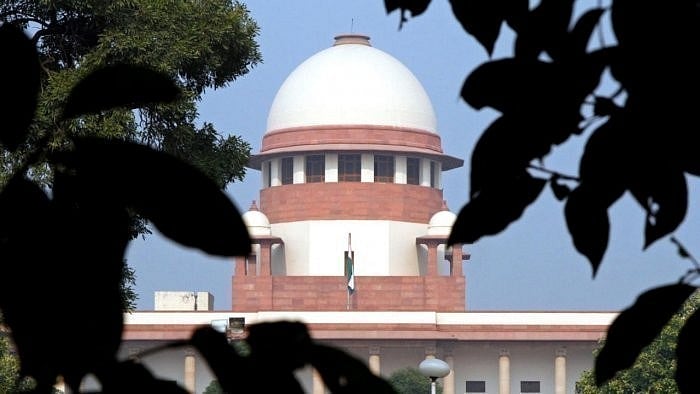
The Supreme Court of India.
Credit: PTI File Photo
New Delhi: The Supreme Court has held passing of an enactment subsequent to the order of this court by the state legislature cannot be said to be an act of contempt.
A bench of Justices B V Nagarathna and Satish Chandra Sharma rejected a 2012 contempt plea filed by sociologist and former Delhi University professor Nandini Sundar and others, saying that any law made by Parliament or a state legislature cannot be held to contempt of court.
"Every state Legislature has plenary powers to pass an enactment and so long as the said enactment has not been declared to be ultra vires the Constitution or, in any way, null and void by a Constitutional Court, the said enactment would have the force of law," the bench said.
The applicants relied upon 2011 judgment to contend the state passed the Chhattisgarh Auxiliary Armed Police Force Act, 2011. They also claimed there has been failure by the state government in rehabilitation of the victims of violence.
Disposing of the contempt plea filed by Sundar, the court emphasised that if any party wishes that the said Act be struck down for being unconstitutional, then legal remedies in that regard would have to be resorted to before the competent court of law.
Sundar in the contempt plea alleged failure of the Chhattisgarh government to comply with its 2011 directions to stop support to vigilante groups like Salwa Judum and arming tribals in the name of special police officers (SPO) in the fight against Maoists.
The bench pointed out it was the duty of the State of Chhattisgarh as well as the Union of India, having regard to Article 315 of the Constitution, to take adequate steps for bringing about peace and rehabilitation to the residents of State of Chhattisgarh who have been affected by the violence from whatever quarter it may have arisen.
The court said that judiciary is vested under the Constitution with the power to resolve interpretive doubts and disputes about the validity or otherwise of an enacted law by Parliament or any state legislature.
The bench pointed out, a legislature has, inter alia, the powers to pass a law, to remove the basis of a judgment or in the alternative, validate a law which has been struck down by a constitutional court by amending or varying it so as to give effect to the judgment of a Constitutional Court which has struck down a portion of an enactment or for that matter the entire enactment.
"This is the core of the doctrine of separation of powers and must always be acknowledged in a constitutional democracy such as ours," the bench said, also disposing of 2007 writ petition.
